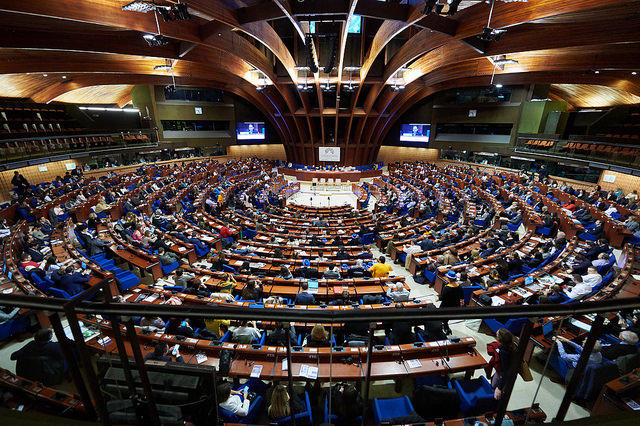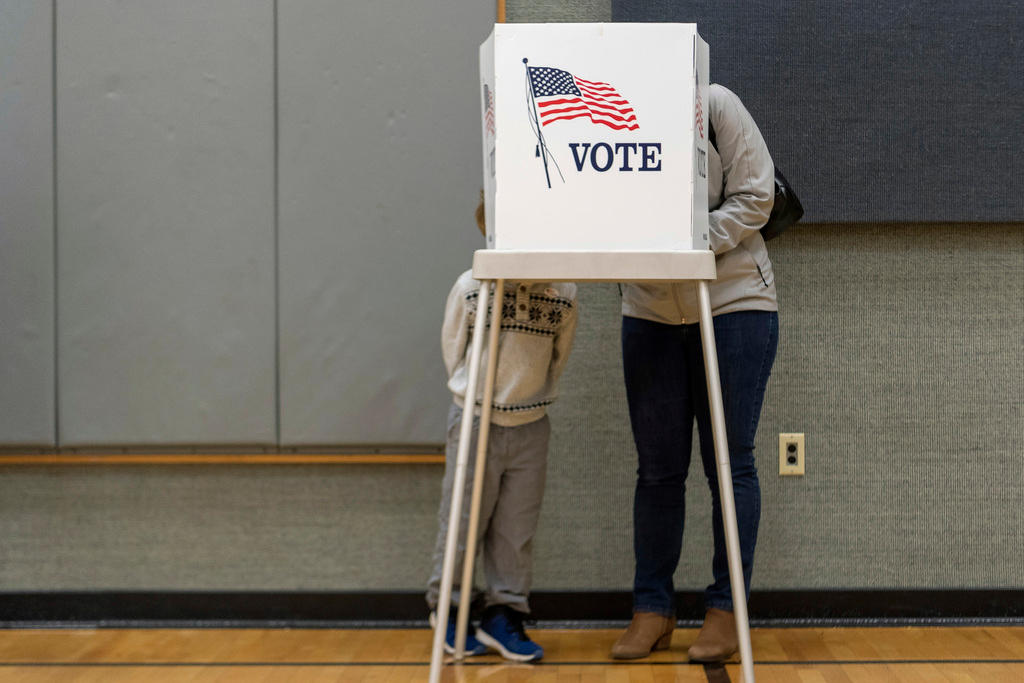Global democracy looking better as Switzerland slips

Increased political participation around the world has halted a democratic backslide, finds the latest democracy index from the Economist Intelligence Unit (EIU). Switzerland has dropped in the rankings, largely due to low voter turnout.
The much-heralded retreat of global democracy, if not definitively stopped, was at least “paused” last year, according to the EIU’s Democracy IndexExternal link, published on Wednesday.
In contrast to various recent reports advertising end times for liberalism and civil rights, the London-based magazine writes that while 42 countries’ democracies declined in 2018, the overall global score remained stable; and almost 50 countries improved.
The main cause of the pushback, which halted a three-year decline, was a boost in the ‘political participation’ category: turnout figures, party affiliation, engagement with the media, and adult literacy levels all increased.
Apart from the Middle East and North Africa, participation increased in all regions of the world, often in response to a high distrust of traditional government. Big turnouts in the US midterm elections were a clear sign of this, the EIU said. Historic levels of female political participation also suggest that democracy is not going to lie down gently.
Switzerland slipping
Perhaps surprisingly, however, Switzerland, with its recurring votes and people’s initiatives, recorded its worst performance in this same participation category (the other four categories measured are electoral process, government functioning, political culture and civil liberties).
Scoring 7.78 on participation, Switzerland slightly edged out the US but was far from model pupil Norway, who achieved a perfect ten. In the overall ranking, Norway was also top, ahead of Iceland and Sweden. Switzerland dropped a place from last year to tenth, while the US was 25th.

More
Despite recent setbacks, democracy is winning
The Swiss slippage in recent years is largely due to low rates of voter turnout, explained the EIU’s lead analyst for UK & Europe, Danielle Haralambous.
Though the country performs well on many aspects of political participation, she said, from women in parliament to minority inclusion, the “voter fatigue” brought about by so many (often complex) ballots has led it to fall behind other countries that continue to improve on this front.
In essence, while the existence of direct democratic instruments lifts Switzerland’s score, a lack of engagement at the ballot box drags it back.
Made to measure
Bruno Kaufmann, swissinfo.ch’s global democracy correspondent, says that the EIU’s methodology is misleading. It’s a mistake to routinely compare countries like Switzerland – where voters are called to the polls up to four times annually – and Sweden, where combined ballots take place only every few years.
The resulting picture, based on averages of apples and oranges, does not fully reflect reality, he says. It is a “quantitative, surface-level picture for political scientists”.
Indeed, although average voter turnout in Switzerland is relatively low (less than 50% for national ballots), most experts agree that this reflects the frequency and complexity of votes and referendums. But, they say, the lower numbers do not hamper the democratic quality of outcomes.
Kaufmann also says that while Norway ranks high on participation due to engagement in groups like trade unions and civic organisations, participation in idiosyncratic Swiss processes like signature-gathering for people’s initiatives is not reflected by the EIU.
Other indices, which take a wider approach to measuring democratic performance, thus come up with alternative rankings. For example, Sweden’s V-DemExternal link (“varieties of democracy”) institute has Switzerland as fourth in its latest index; for the Bertelsmann FoundationExternal link, Switzerland comes in sixth.

In compliance with the JTI standards
More: SWI swissinfo.ch certified by the Journalism Trust Initiative












You can find an overview of ongoing debates with our journalists here . Please join us!
If you want to start a conversation about a topic raised in this article or want to report factual errors, email us at english@swissinfo.ch.